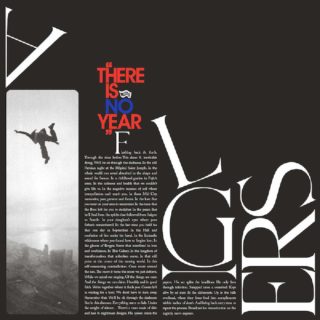Algiers
There Is No Year
(Matador)
4/10

(Matador)
4/10
In case you hadn’t noticed, everything’s fucked. The climate crisis, Boris-Trump-Brexit, surveillance capitalism, Syria-Yemen-Palestine – 2019’s particular tableau of apocalyptica was as rich and varied as any that have come before, and to add to the fun, there’s nothing you can do about it. Algiers, you sense, realise this: the cover of their third album features a photograph of a man in a business suit free-falling towards a murky city like a 9/11 jumper, his fate entirely knowable, unavoidable, and tragic, beside which are the opening 50 or so lines of an epic poem by lead singer Franklin James Fisher rhapsodising on men “made of skin and hair and nightmare designs” and an “alone and inevitable” death. (The remaining 700 lines, from which all the lyrics on There Is No Year are drawn, are reproduced inside). And if that already feels a little presentationally ripe, wait until you hear the record: we might be well aware we’re going to hell, but Algiers have arrived – TV On The Radio records in one hand, thesaurus in the other – to tell you exactly how, again and again, for 40 minutes.
Undeniably, this is the sort of record we need right now – something urgent, aggressive, inflammatory and questioning of everything – but unfortunately Algiers seem have to have spent so long introspectively soul-searching about the end of the world that they’ve forgotten how to write much in the way of engaging music. Sure, both ‘Chaka’ and ‘We Can’t be Found’ have moments of pleasing musical nuance, but the rest is overblown and rather samey bombast, all plodding Doomy Reverb Piano and generic lyrics about fire raining down on the streets, that aims for the ominous but ends up more like the high-camp faux-epic soundtrack to a Sky Sports Super Sunday montage.
The aforementioned poem that inspires every word on There Is No Year, by the way, is titled Misophonia, which is also a neurological disorder where certain sustained or grating sounds trigger extreme responses, normally anger or panic, in the listener. That such a condition should inform an album as grindingly repetitive as this is too much of an irony open goal to prompt further comment, but it is nonetheless rather instructive of Algiers’ headspace: their highfalutin conceptual dismantling of the world’s ills may be self-soothing – even self-gratifying – but in being impressed by their own reflection, they’ve forgotten to consider how it might sound to anybody else.